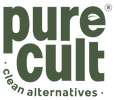Ask yourself the following question!
Do you look at the ingredients list on the back of the bottle before you buy your home cleaning products (much the same way as you would do with food)?
Generally, we are careful about what we ingest through food but we may well forget about passive ingestion – that means what happens when we breathe in the air around us and also what our skin absorbs. You would think that the products you buy in the supermarket would be safe enough to use – after all, they’re on sale and they’re produced by big brand names! The truth is, they’re invariably not.
The average household contains around 60 chemicals that are renowned for being toxic. You and your family are regularly exposed to dangerous chemicals including phthalates, Triclosan, quuats, ammonia. Many household cleaning products contain ingredients linked to hormone disorders, cancer, asthma and heart disease. That’s disastrous enough but even worse, in many countries, these products don’t need to meet safety standards so they aren’t tested.
We’ve examined the really dangerous chemicals in another article here but let’s quickly recap on the ingredients that you need to avoid and the best natural cleaning agents to replace harmful chemicals.
- Pthalates: Found in soap and air fresheners and the brand owners don’t have to tell us what’s in their fragrance so phthalates are often left off the ingredients label. Phthalates are known endocrine disruptors easily ingested through inhalation as well as absorbed into the skin. When the skin absorbs a chemical, it travels straight to the organs. Avoid aerosol sprays and use a natural, organic candle made with essential oils to fragrance your home. Use organic products for your household cleaning products; they are more likely to be phthalate-free.
- Triclosan: This is often found in liquid dishwashing detergent and anti-bacterial hand-soap. Triclosan prevents you building up natural resistance to microbes so can affect your immune system. Due to the high-use of Triclosan in household detergents, there are rivers full of it, it’s toxic to algae so destroys plant life and harms marine life. There’s research at the moment on whether Triclosan is a hormone disruptor and it’s possibly carcinogenic. Avoid anti-bacterial products, hand-sanitizer and use organic soaps.
- Quats (Quarternary Ammonium Compounds) are found in fabric softeners and anti-bacterial cleaners. Another antimicrobial they reduce your immune system’s response to antibiotic bacteria. They’re a known skin irritant, particularly aggravating dermatitis and they encourage asthma. Vinegar is an excellent natural alternative to Quats for fabric softener, it’s non-toxic and stops static. For general cleaning, try white vinegar, it was always used in Victorian times and is excellent at getting glass sparkling!
- Ammonia: This is present in many household cleaners, used for stainless steel polishing and window cleaning but it is a known irritant, to the skin, to the respiratory system and causes breathing problems. Mixed with bleach, it creates a poisonous gas. For a natural alternative, vodka gets a great sparkle!
- Chlorine: This is often used in toilet cleaners and is a respiratory disaster! There is evidence that it’s also possibly a thyroid disruptor. Baking soda is a better, safer choice as is borax or vinegar.
Natural Household Detergent Alternatives
You can go green with your cleaning products, either by buying PureCult naturally prepared cleaning products or if you have time, why not make your own? Natural cleaning agents are just as effective as those loaded up with harmful chemicals and the chances are you have them stored away in your pantry. They’re also cheaper than the high street brands. The old-fashioned cleaning products such as vinegar, baking soda, lemon and borax are environmentally friendly and effective. Here’s how to use natural cleaning agents and what the ingredients are best for:
Baking Soda
Baking soda can be used for a variety of purposes. For cleaning floors (with a scrubbing brush and a little water), for cleaning the oven (combine 100g of baking soda with 40g of salt and 40g of water and leave in the oven overnight). Baking soda is also perfect for cleaning your HOB, use it neat with a damp sponge.
Use baking soda to clean your bath and sinks too. To get tough stains out, mix with a little vinegar and apply direct, wiping away grime with a damp cloth.
Vinegar
Mix vinegar and water to clean your fridge, inside and out (it doesn’t work as well on stainless steel). Vinegar is also excellent for glass, so use it to clean your windows.
Vinegar and Baking Soda
Together, these natural ingredients make an outstanding toilet cleaner! Blend 40g of baking soda with 120g of vinegar and pour it into the bowl, let it settle then scrub with a brush.
Lemon Juice
This makes an excellent dishwasher freshener, squeeze some natural lemon juice directly to your dishwasher for a sparkling finish, or place half a lemon inside for fragrant dishes!
Vinegar and Lemon
With a little water, these make a great all-purpose household cleaner! Blend together in equal parts and let it infuse for a few days, then get cleaning.
Lemon and Borax
Blended together, lemon and borax make a powerful bathroom or kitchen cleaner, use 40g of each and mix up, then spray or apply with a damp cloth to bring up clean sinks, baths, toilets and worktops.
So there’s no need to use those harmful cleaners and actually you will do your family, your home and the environment the power of good by switching over. By taking steps to a purer living, we can all work together to save the planet for future generations.


